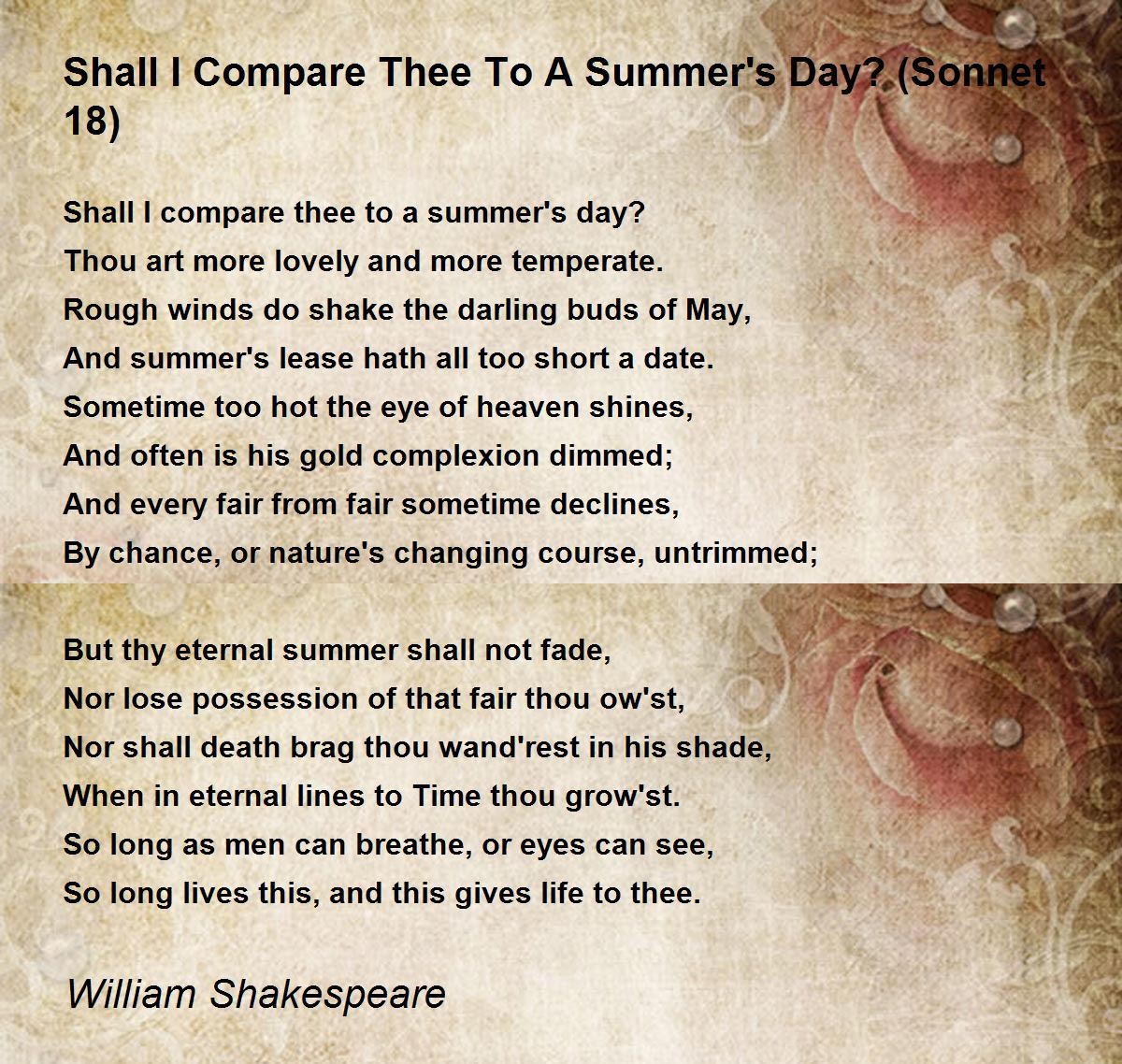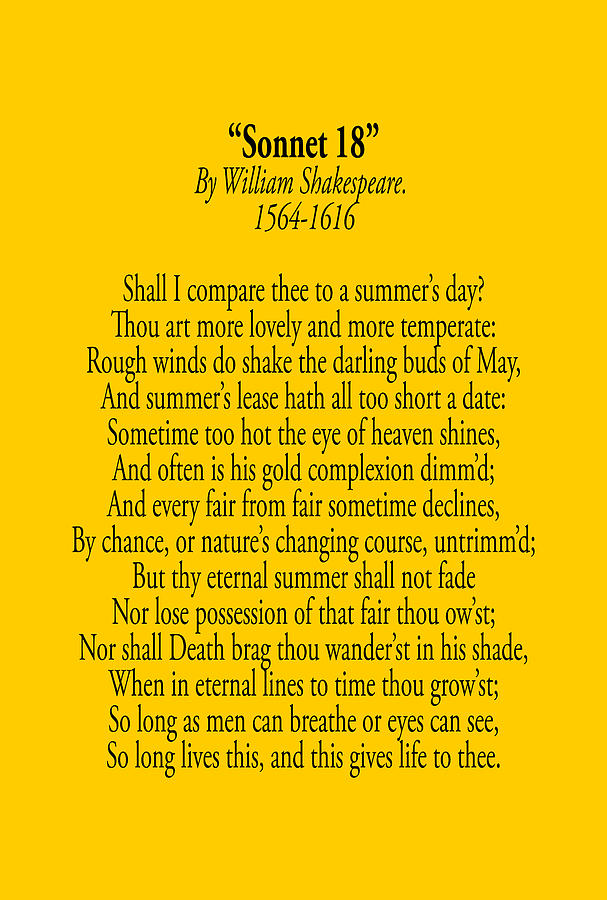

Lines 5-6: There’s the apparent opposition here, in that sometimes the weather is too hot, and sometimes it’s too cold. Also, the "darling buds" introduce an extended metaphor of plant life and the conditions needed to sustain life that runs through the rest of the poem Note also that this implies a metaphor of the weather as a rentable property. The next line is a much more obvious case of personification, as summer can’t literally take out a lease on anything. Even if winds might really be able to "shake" things, and buds could be described as "darling," these are both words more often applied to human actions. Lines 3-4: This is all personification here. When applied to the beloved, it means "showing moderation or self-restraint," but when applied to the summer’s day it means, "having mild temperatures." Line 2: "Temperate" is a pun, since it carries two important meanings here. Line 1: This is a rhetorical question, as the speaker definitely doesn’t care how or whether we answer him, and it also introduces what will be the main metaphor of the poem, as the summer’s day will be discussed using concepts more literally applicable to the beloved than to summer itself. 
#SONNET 18 BY WILLIAM SHAKESPEARE FULL#
And then there’s the fact that summer actually is, in some sense, immortal, since it returns in full force every year. If being written about preserves immortality, then the summer ought to be immortal because the speaker’s writing about it as well. The thing is, the contrast doesn’t really work, since summer, if anything, seems much more eternal than the beloved. He tries really hard to distinguish them, ultimately arguing that the beloved, unlike nature, will be saved by the force and permanence of his poetry. From the beginning of the poem, the speaker tries to set up a contrast between the beloved and a summer’s day.






 0 kommentar(er)
0 kommentar(er)
